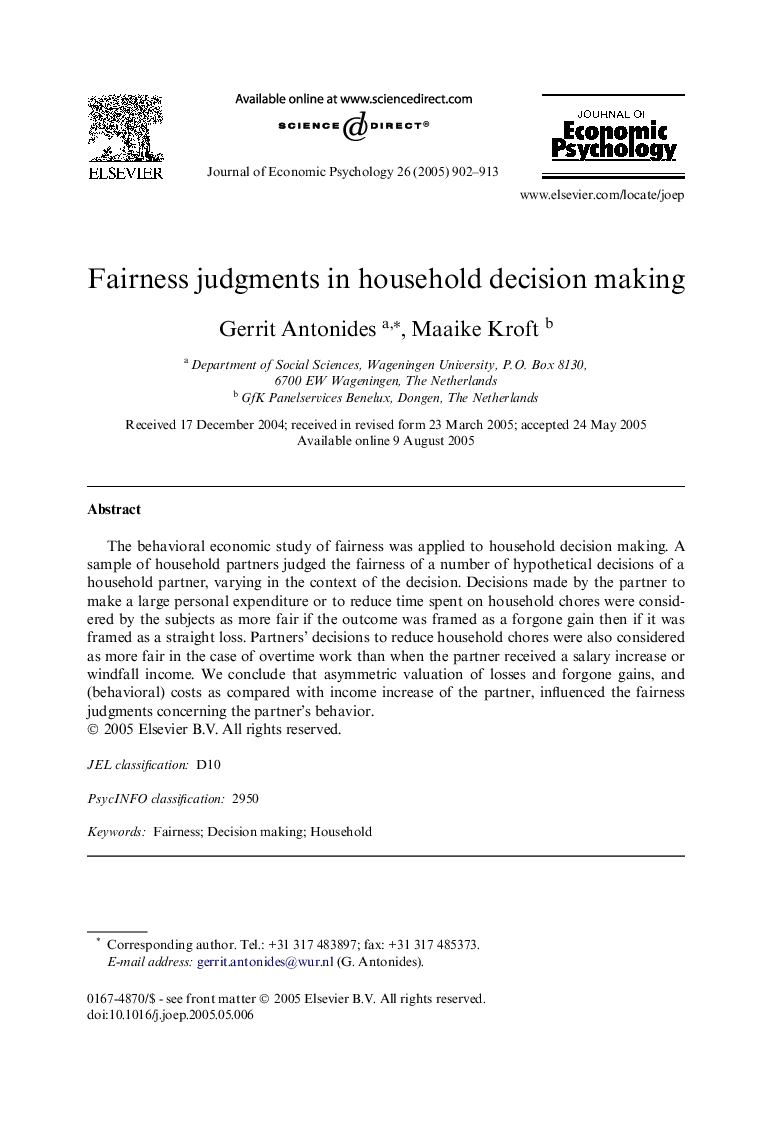| Article ID | Journal | Published Year | Pages | File Type |
|---|---|---|---|---|
| 10438504 | Journal of Economic Psychology | 2005 | 12 Pages |
Abstract
The behavioral economic study of fairness was applied to household decision making. A sample of household partners judged the fairness of a number of hypothetical decisions of a household partner, varying in the context of the decision. Decisions made by the partner to make a large personal expenditure or to reduce time spent on household chores were considered by the subjects as more fair if the outcome was framed as a forgone gain then if it was framed as a straight loss. Partners' decisions to reduce household chores were also considered as more fair in the case of overtime work than when the partner received a salary increase or windfall income. We conclude that asymmetric valuation of losses and forgone gains, and (behavioral) costs as compared with income increase of the partner, influenced the fairness judgments concerning the partner's behavior.
Related Topics
Social Sciences and Humanities
Business, Management and Accounting
Marketing
Authors
Gerrit Antonides, Maaike Kroft,
